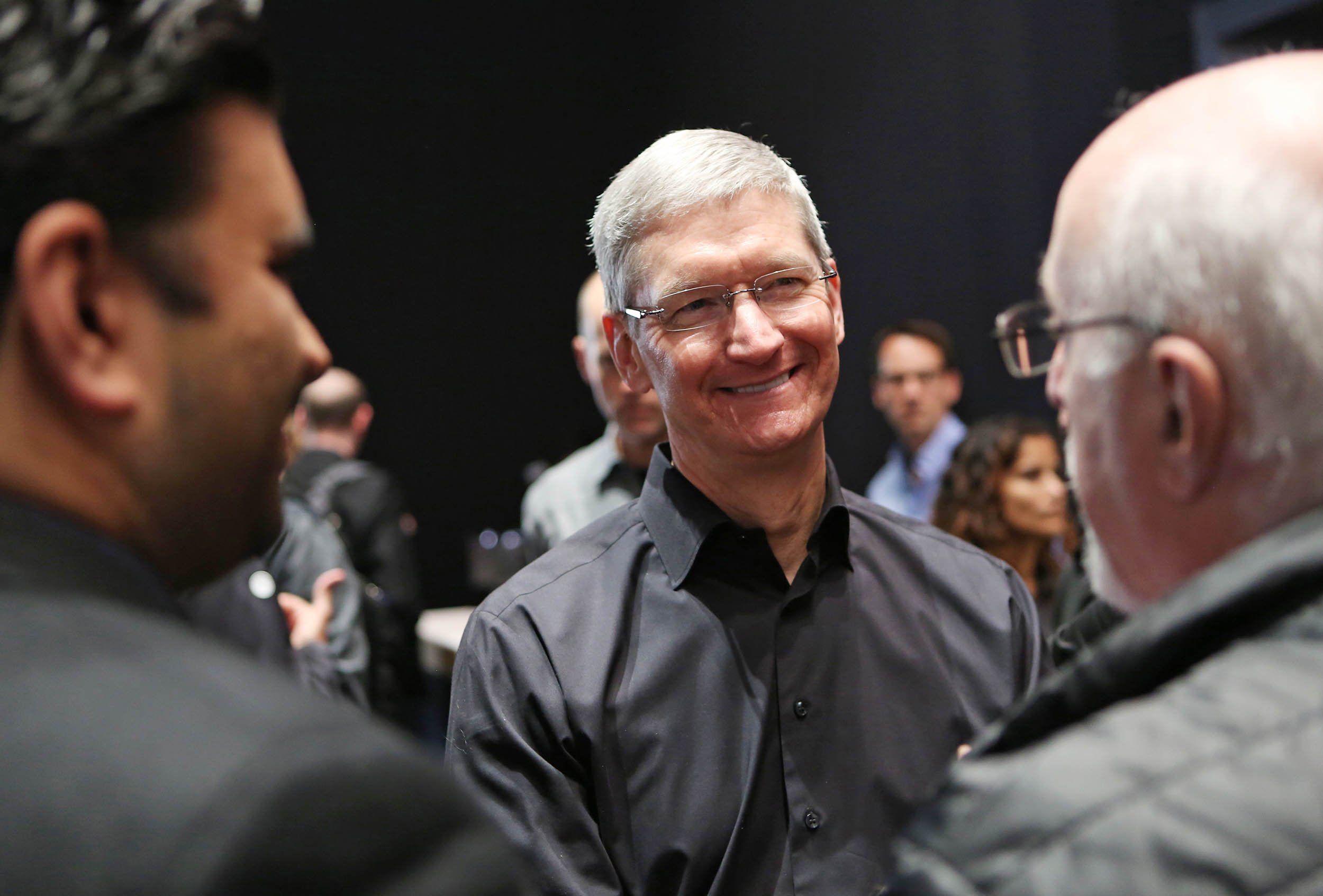
This article originally appeared on the Motley Fool.
It's now been five years since Steve Jobs lost his fight with pancreatic cancer. Most observers wouldn't consider five years a particularly long period of time, but the tech world tends to move remarkably fast; five years is an eternity in Silicon Valley. That may be why it feels like Tim Cook has been Apple's CEO for so long, taking over just a few months prior to Jobs' death. Here are five notable ways that Apple has changed under Cook's leadership.
1. More collaborative
Jobs had famously created internal silos within Apple in his never-ending pursuit of secrecy. There are no shortages of stories about the security measures that Apple used to employ, particularly around top-secret projects. While there should be no doubt that some of these structures are still in place, it's just as clear that Cook has broken down a lot of those walls with the goal of increasing collaboration.
The high-profile ouster of former iOS chief Scott Forstall in 2012 was done in the name of collaboration. Forstall didn't get along with many other executives, including Jony Ive. Plus he refused to take ownership of the disastrous Apple Maps launch. Recognizing that in order to achieve the maximum level of integration across hardware, software and services, it doesn't make much sense to compartmentalize engineers, Cook set about to improve Apple's ability to collaborate. It's probably not a coincidence that Apple's various online services, while not without fault, now perform better than ever before.
2. More shareholder-friendly
As more of a traditional MBA-type of CEO, Cook places higher value on shareholders and their opinions. Jobs never had much regard for investors, and merely tolerated them by necessity. Jobs was also always averse to returning capital to shareholders, preferring to hoard cash to an unreasonable degree. He even ignored Warren Buffett's advice on the matter.
Apple's massive capital return program is easily the most shareholder-friendly move that Cook has made. The company simply had way too much capital just idling on the balance sheet. Through June 2016, Apple had returned a cumulative total of $177 billion since 2012 between dividends and share repurchases. That's $177 billion more than what Apple returned to shareholders under Jobs. To be fair, Jobs delivered capital appreciation in spades.
3. More engaged with the media
For the longest time under Jobs, Apple would mostly stonewall the media. Anytime you read any article about Apple, you could count on the obligatory line that Apple declined to comment. This was a strategic aspect of how Jobs would influence the media—by using controlled favoritism. Any media outlet getting access to Apple was a big deal.
After becoming CEO, Cook wanted to actively change the way that Apple interacts with the media. The company's longtime head of PR, Katie Cotton, retired in 2014 after 18 years at Apple. Officially, Cotton's retirement was attributed to personal reasons, but unofficially there was a clear shift in how Cook wanted Apple to be perceived. Mark Gurman's expose at 9to5Mac (prior to joining Bloomberg) back in 2014 on Apple's media and PR strategy is a must-read.
These days, Apple responds to media inquiries and grants executive interviews far more than ever before.
4. More profitable
It may also come as a shock to remember how much more modest Apple's financial performance was in 2011, relatively speaking. In the four full fiscal quarters preceding Jobs' death, Apple had sold 72.2 million iPhones, generated $108.2 billion in total sales, and posted $25.9 billion in net income. The company had $81.6 billion in total cash on the balance sheet a few days before his death.
Apple has now reached a quarterly record of 74.8 million iPhones, trailing-12-month sales stand at over $220 billion, and net income over the past year has been almost $50 billion. The numbers speak for themselves: Cook has executed tremendously well.
5. More socially responsible
Cook has also helped usher in a new era of social responsibility for Apple. From addressing human rights issues within its supply chain, to implementing a charitable matching program, and aggressively doubling down on environmental responsibility, it's clear Apple has grown meaningfully in this department. Not that Jobs' Apple was particularly lacking in social responsibility, but Jobs was more preoccupied with product development.
It goes without saying that Jobs is irreplaceable. But you also can't question the contributions that Cook has made while putting his own mark on the company.
Uncommon Knowledge
Newsweek is committed to challenging conventional wisdom and finding connections in the search for common ground.
Newsweek is committed to challenging conventional wisdom and finding connections in the search for common ground.
About the writer
To read how Newsweek uses AI as a newsroom tool, Click here.








